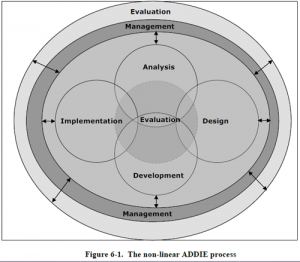Goals Based Evaluation
Goals-based evaluation is a method used to determine the actual outcome of a organisation development programme when compared to the goals of the original contracted plan. Performing a goals-based evaluation helps to develop successful processes and either discard or realign unsuccessful ones. Observations from the evaluation can help the efficiency of future programmes.

An understanding of how the goals for the OD programme were established is the start point of a goals-based evaluation. OD programme goals need to be grounded in the outcomes of the diagnostic phase and should use diagnostic data to produce effective performance measuring tools.
Measuring the performance of the programme can be established through reviewing the programme timeline for achieving goals. Whether the programme is on target to achieve or has achieved key milestones can provide an evaluation as to how the actual data compared to projections. One of the observations made by a goals-based evaluation is whether the original programme plan was appropriate for and if the milestones were placed effectively. Creating an understanding of how timelines should have (or be) changed and if not, why not.
An OD programme must ensure that it has the proper resources to successful achieve completion. Part of a goals-based evaluation is to determine whether the necessary resources were provided, at each juncture, in order for the programme to successfully progress. Resources may include people, finance, equipment, facilities, research, training and third-parties.
OD programmes goals will be prioritised in order to help achieve the final overall goal. A goals-based evaluation will indicate if those priorities needed to be changed, added or removed for future interventions.

